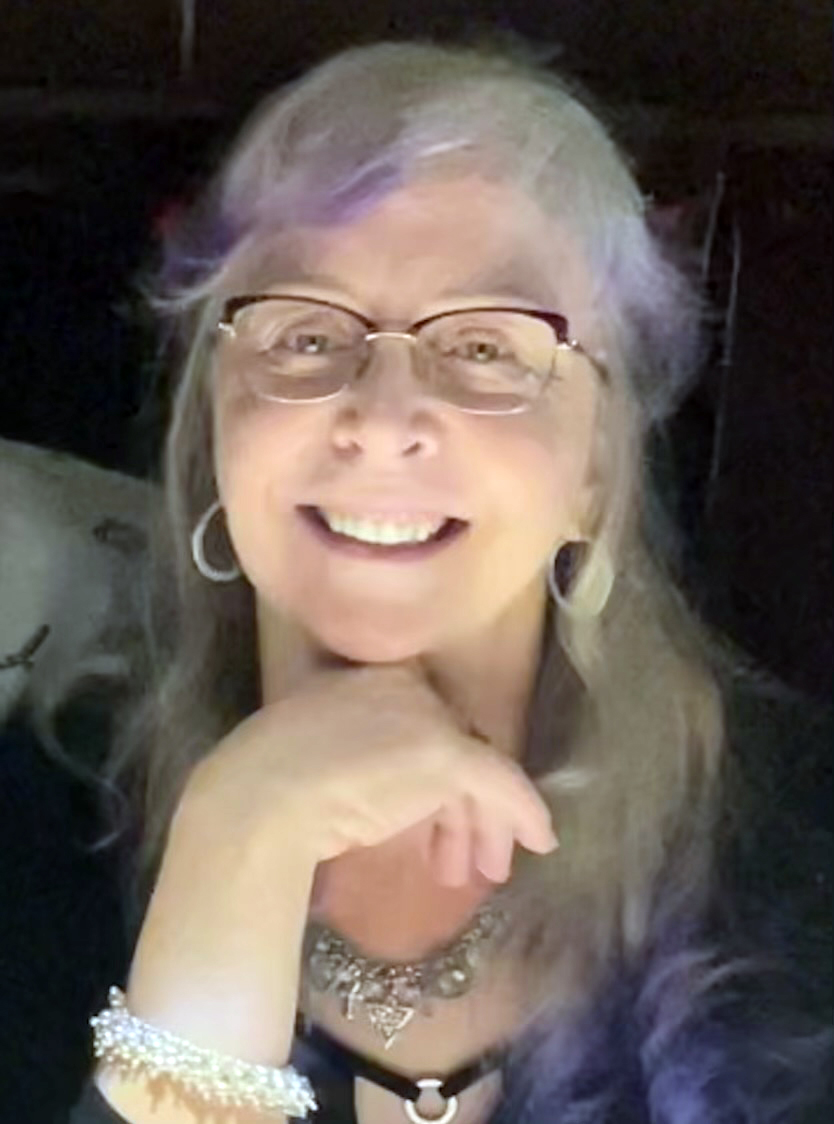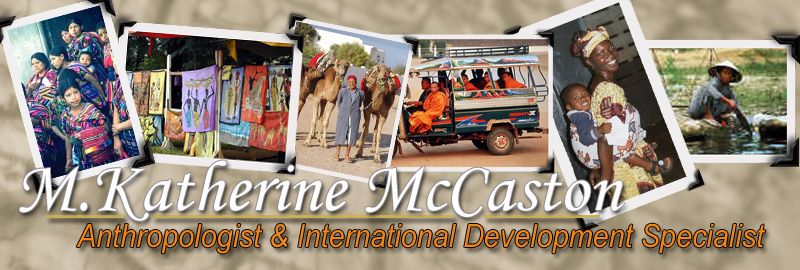|

|
Katherine McCaston has
over 25 years of experience in anthropology and international development.
Kathy worked as Senior Advisor for Integrated Programming at CARE, one of
the largest relief and international development organizations working to
end global poverty and promote social justice. Her research interests span a
range of fields related to anthropology and international development,
including political science, women's studies, and medical anthropology.
Kathy's early years growing up in South Carolina's oldest public housing
project led to her early interest in and study of poverty, class, and race
in America. |
|
Kathy studied cultural anthropology, with an
emphasis on Latin America, as an undergraduate at the University of South
Carolina, in Columbia, South Carolina. She studied Spanish in Cuernavaca,
Mexico. After becoming proficient in Spanish, she conducted ethnographic
fieldwork on traditional medicine in the village of Santa Catalina, Mexico
sponsored by the University of South Carolina and the Mexico National
Institute of Anthropology and History (INAH). She went on to further studies
in medical anthropology and international health.
Kathy attended the
University of Arizona for her Master's degree. In addition to course work in
cultural, applied, and medical anthropology, her interests led to a focus on
Latin American studies, political science, and women's issues. In a summer
program, Kathy studied the history of Mexican peasant revolts at the
University of Guadalajara, in Guadalara, Mexico.
During graduate school,
Kathy became interested in the local and global socioeconomic processes that
had led to the proliferation of squatter settlements along the
Mexican-American border. She conducted ethnographic fieldwork in Colonia
Emiliano Zapata, Nogales, Mexico, where she studied the process of land
grabbing, land legalization, the political empowerment of squatters, with
particular emphasis on the empowerment of women at the community and
household level. The topic of her Master's Thesis was Power and Popular
Protest in Colonia Emiliano Zapata, a Squatter Community in Nogales, Mexico.
She completed her Master's Degree with distinction in 1990. Kathy also
completed significant additional coursework at the University of Arizona
after her Master's degree.
Kathy worked as a
consultant for numerous international development agencies before joining
CARE in 1996. Throughout her education and career, she has emphasized the
importance of addressing social inequities and a strong belief in the human
spirit and its potential to change our world. She has worked and spent
significant time in 33 countries in Latin America, Africa, Asia and Eastern
Europe.
After 2003, Kathy's work
focused on development theory and underlying causes of poverty. Kathy led
the development of the Unifying Framework for Poverty Eradication & Social
Justice conceptual model. The Unifying Framework was designed to help
optimize the effectiveness of CARE's worldwide activities. The framework was
adopted by CARE top management, and was praised throughout the organization
and by two successive CARE CEOs.
Kathy left CARE in 2008 and
shifted into part-time consulting work. In 2013, Kathy became an Adjunct
Professor at the LBJ School of Public Affairs at the University of Texas in
Austin. She teaches graduate-level classes on international development and
grant writing.
Kathy currently lives In
Austin, Texas, with her husband, Michael Young, who is an Environmental
Scientist at the Bureau of Economic Geology at the University of Texas.
Kathy is active in the dog rescue community in Austin and surrounding areas.
Kathy works pro-bono helping animal rescue non-profit organizations develop
strategic plans. She is on the Austin Lost and Found Pets Street Team. She
volunteers for several dog rescues and at a low-cost spay and neuter clinic.
Kathy & Michael foster dogs and are dedicated to helping keep Austin a
No-Kill City. They enjoy kayaking, bicycling, and traveling the countryside
with their many beloved dogs.
|

